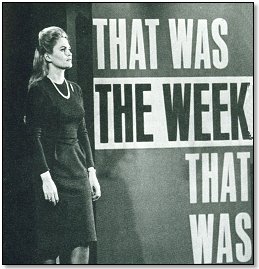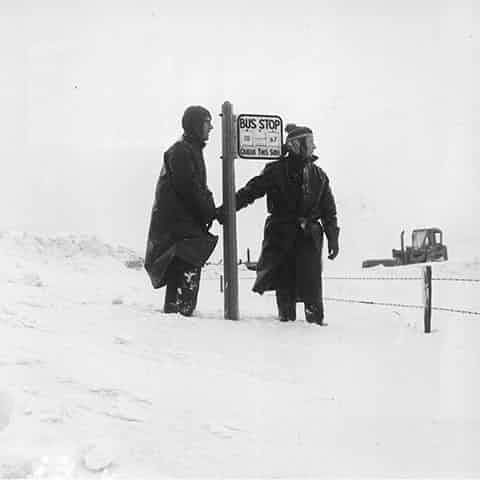[if you’re new to the Journey, read this to see what we’re all about!]

by Gideon Marcus
It is said that "No news is good news," but I imagine every publisher would disagree. After the big-ticket headlines of October of November involving the Cuban and Chinese/Indian episodes things have quieted down on the domestic and world fronts. The Cold War has thawed such that the only current evidence is a holey wall in Berlin and a small brushfire in Indochina. The Katanga crisis in The Congo approaches resolution. Even the latest manned space shot was a bore – six perfect orbits. The biggest news is about something that hasn't happened yet: Kennedy wants to lower taxes significantly to spur the economy. Of course, Conservatives oppose the move as they don't want to blow a hole in the deficit (a position I'm sure they will hold eternally).

This month's Analog, the last sf digest of the month, complements the news situation. It's filled with pages and pages of pages, none of which will likely stick with you long after you set it down. The stories in this month's issue don't even have the virtue of being terrible. Just redolent in that smug mediocrity that so frequently characterizes this mag, once the flagship of science fiction.
"The Hard Way", by Gordon R. Dickson

An alien interstellar scoutship stumbles across a human derelict ship, spurring its captain, Kator, member of a rapacious felinoid race, to dream of conquest of the Earth. Kator is dispatched to the solar system to surveil our defenses, find a weakness, and return to his homeworld to take charge of the invasion fleet.
Kator finds Earth to be a curiously undefended planet, weapons seemingly nonexistent. The cat-man finds this state improbable given our warlike history and quickly deduces that we store our weapons underground. Thus ensues his mission of subterranean espionage, fraught with an increasingly difficult set of physical and mental challenges. Is it just a run of bad luck? Or a complicated trap set-up by the humans to evaluate would-be competitors?
Well, I won't leave you in suspense. Campbell's the editor of Analog, and all of his stories feature Terran supremacy if he can help it. As well-drawn as the first half this story is (Dickson really is an excellent author when he's not writing for Campbell), I just knew that it would end with a human waggling his superior finger at Kator, lecturing the felinoid that trying to subjugate Earth is a fool's errand.
Setting aside the utter implausibility of the story, which requires an omniscience even Campbell's humans shouldn't be capable of, this kind of fatuous tale sticks in my craw. Two stars.
Philosopher's Stone, by Christopher Anvil

Who will win the economic Cold War between the US and USSR? It turns out it's the UK, which brings nobility and social stratification back as rewards for effecting (but not inventing) technological advance. Because, apparently, money just isn't enough incentive.
This paean to aristocracy, particularly the self-satisfied ending, isn't worth your time. Two stars.
The Common Man, by Guy McCord

Three biochemists in concert discover a serum of invisibility. One wants to give the formula to the the government, another feels the secret too dangerous to communicate. The third proposes an experiment: under controlled conditions, provide the serum to an average American and see what he does with it.
Well, as one might expect, the power of complete stealth proves too heady a temptation for mortals. The ambitious guinea pig uses his abilities to amass great wealth, build a criminal network, and capture the scientist trio. His plan is nothing less than global domination. Only the ingenuity of the scientists and the carelessness of the test subject put an end to the frightening turn of events.
I feel that this story could have said so much more than it did. What could have been a horrifying illustration of the corruption of absolute power, or an illustration of how science (so often perceived as the unalloyed agent of positive progress) is often the handmaiden to misery, is reduced to a pat "eggheads really are the smart ones" piece. It's a pity. I've seen better from this author. Well, not quite this author – "Guy McCord" is a new name to me, but given that "Mack" Reynolds' full name is Dallas McCord Reynolds, I'm pretty sure The Common Man is by the Analog regular who gave us the (much better) Mercenary. Three stars.
The Search for Our Ancestors, by Prof. G. M. McKinley

We have learned so much about the evolution of humans recently, thanks to the work of Leakey's archaeology in Africa (and to some extent, Goodall's work with chimpanzees, too). McKinley's article is a fascinating but sloppy summary of the current state of understanding in the field. Three stars.
Space Viking (Part 3 of 4), by H. Beam Piper

Last up is the next segment in Piper's answer to Asimov's Foundation, in which the wreckage of the Old Federation is slowly knit back together by Prince Trask, Space Viking of planet Tanith. This installment retains the same positives and negatives of the prior two: an interesting universe and plot marred by sketchy execution (almost an outline of a story) and a jarring paucity of female characters. I'm still rankling at Piper's killing of Trask's bride, Elaine, in the first act of the novel to provide Trask with character motivation. I will say concede, however, that the introduction of the young Crown Princess of Marduk in this episode is promising. Three stars.

This being the last magazine for the month, we now can review the numbers for January 1963. IF comes up the winner at 3.3 stars, while Amazing (3 stars) had the two best stories one of them being the only woman-penned story. F&SF was the worst, at 2.3 stars. Average for the entire month was a dreary 2.77 stars, but there are enough high-quality works to fill a good single digest. Read those, and you'll be satisfied!
Next up – a look at the fantasy and horror films of 1962!
[P.S. If you want the chance to nominate Galactic Journey for Best Fanzine next year, you need to register for WorldCon before the end of the year! (or have registered last year… but then you can only nominate, not vote.) The Journey will be at next year's WorldCon, so don't miss your chance to meet us and please help put us on the ballot for Best Fanzine!]








































































